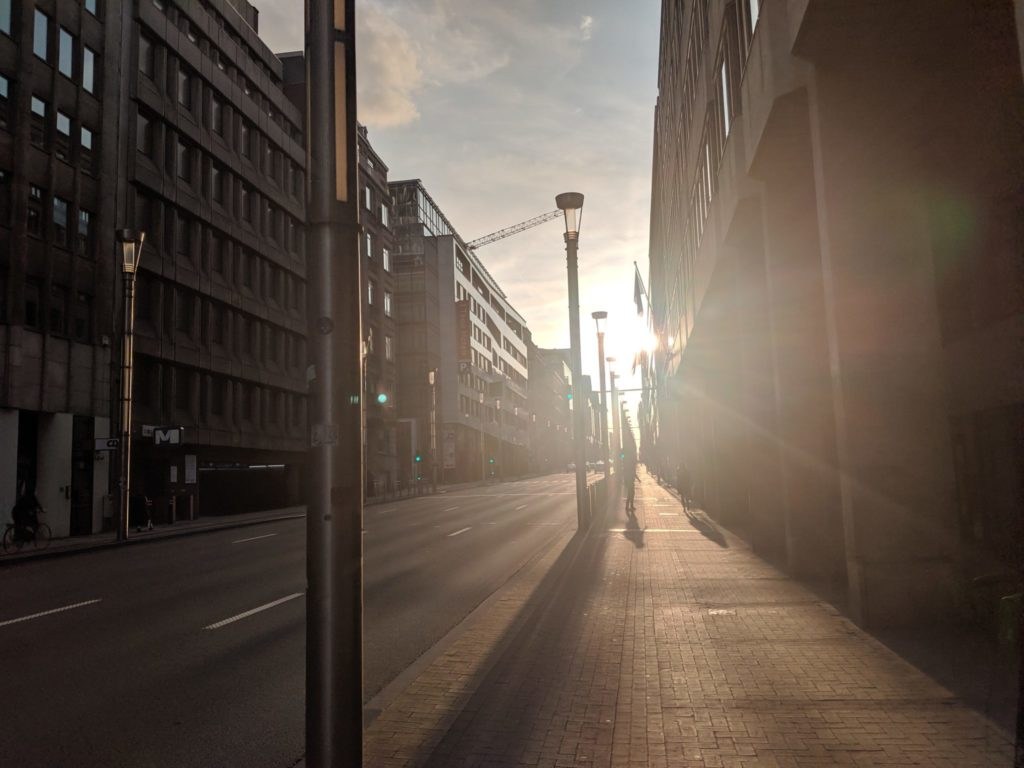New major measures such as lockdowns will not be imposed in Belgium anymore, even now that the infections figures are rising, according to biostatistician Geert Molenberghs (UHasselt/KU Leuven).
Following the Consultative Committee's announcement that the rules for non-vaccinated returning travellers would be tightened, Molenberghs reacted "cautiously positive."
"We have to remain cautious, but if we can maintain this rate of vaccination and carry out proper checks on travel, we can make further gains," he said, implying that stricter measures will no longer be needed.
Virologist and interfederal Covid-19 spokesperson Steven Van Gucht also stated that requiring two tests from travellers returning from areas where variants are circulating is "an improvement," as "one test is just a snapshot, and can miss an infection."
On Monday, the Consultative Committee decided that travellers who have not been fully vaccinated returning from an EU/Schengen area country where dangerous variants are circulating, must undergo a PCR test on day 1 and day 7, regardless of the colour code of the area they came from. People who test positive must remain in quarantine for ten days.
"If the infection has only just started, it is not yet in the nose," Van Gucht told VTM News. "And the beginning infection that you did not detect at first, you can pick up with the second test."
Related News
- Belgium tightens rules for returning travellers
- 'Shifts the problem': banning travel to Spain is not smart, says Van Gucht
- Parts of Greece and France turn orange, Spain fully red on European travel map
According to him, Belgium is currently tackling the crisis well. "If you compare our country with the Netherlands and the United Kingdom, we have taken a slightly more cautious approach. We are going forward more calmly and there aren't any big announcements."
Caution remains important, however. "I would not dare to give guarantees such as 'from 1 September, this or that will certainly be possible'. I would like to wait and see how the figures evolve," Van Gucht said.
"And in the meantime, we learn a lot from other countries. We will learn a lot from the United Kingdom, for example: if things turn out well there, we might conclude that we could take a few steps further."
According to Molenberghs, too, it is particularly good that the decision was made not the open everything again on 1 September - as the last step of Belgium's "summer plan."
"Belgium is generally doing well," he said. "If people remain cautious, including with the number of social contacts and travel, we can continue on this momentum."
However, Molenberghs is rather sceptical about the announced extra checks that will be put in place for travellers, at airports and train stations.
"Tighter controls have been announced before, but they remain a sore point," he said. "I give the Consultative Committee the benefit of the doubt, but I will have to see it before I believe it."
Additionally, for mass events - such as music festival Pukkelpop from 19 to 22 August - it is still too early, even with the Covid Safe Ticket, according to Molenberghs.
With it, people can prove that they have been fully vaccinated, have a negative PCR test result not older than 48 hours, or recently recovered from the virus. In that case, they will not be required to wear masks or keep their distance.
"It is not yet time for such events, I remain concerned about that," he said. "The PCR tests can show leaks. If someone does test positive at Pukkelpop, and that person infects someone who has tested negative but has not yet been vaccinated, the ball can start rolling again."
"When people are vaccinated, they are less likely to get infected and are also better protected against false negatives. So, it is better to wait with mass events until the vast majority of the population is fully vaccinated," Molenberghs stressed.

